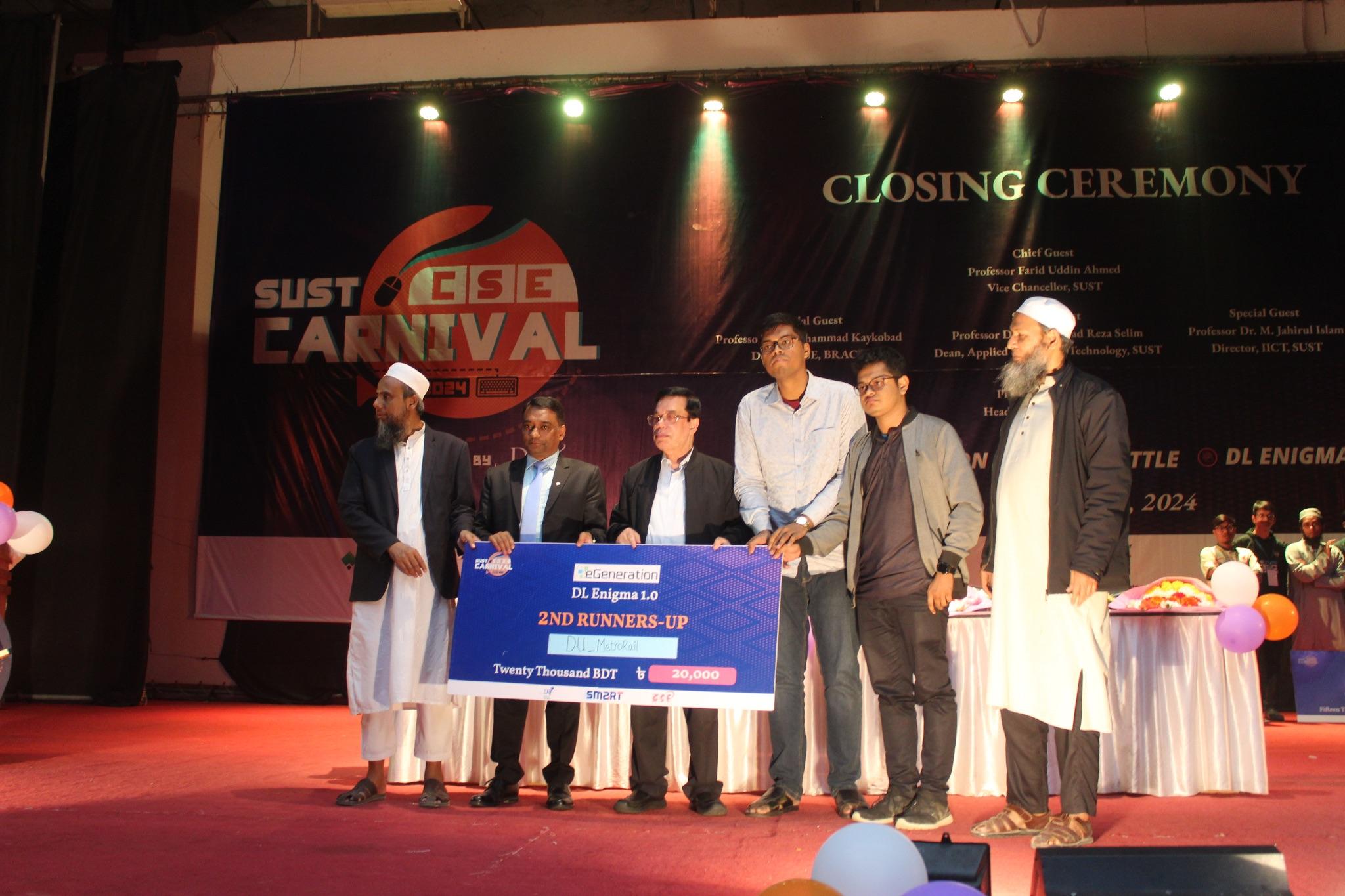
CSEDU Team DU_MetroRail Secures 2nd Runners-Up Position in DL Enigma 1.0 - SUST CSE Carnival 2024
DU_MetroRail team, led by Abdullah Ibne Hanif Arean (CSE 26th Batch), comprised of Mahmudul Hasan (CSE 26th Batch), Nazmus Sakib (IIT 11th Batch), and Istiaq Ahmed Fahad (IIT 12th Batch), demonstrated commendable prowess by securing the “2nd Runners-up” position in “DL Enigma 1.0 - SUST CSE Carnival 2024”. Notably, Abdullah Ibne Hanif Arean was bestowed with the “Best Solution Notebook'' for his exceptional Exploratory Data Analysis (EDA) notebook on the provided dataset
The DL Enigma 1.0 competition, an integral segment of the SUST CSE Carnival, was strategically crafted to foster advancements in Autonomous Driving Technology in the context of Bangladesh. Participants were tasked with the intricate challenge of object detection in diverse driving scenarios spanning nine districts in Bangladesh, utilizing the BadODD (Bangladeshi Autonomous Driving Object Detection) dataset.
Spanning from January 20th to February 11th, 2024, the competition garnered active participation from numerous institutions across Bangladesh. Phase 1 witnessed fervent engagement, with participants submitting their solutions on Kaggle around 98 teams participated. The subsequent Phase 2, conducted on February 18th, involved the top 10 teams advancing to present IEEE format papers and slides in on-site presentations. The judging criteria were comprehensive, encompassing solution quality, presentation effectiveness, and inference time.
The DU_MetroRail team's methodology introduced a transformer-based solution to object detection on Bangladeshi roads, leveraging the Co-DETR model. Their innovative collaborative hybrid assignments training scheme effectively addressed challenges such as varying lighting conditions and diverse road typologies, culminating in heightened object detection accuracy. Notably, due to technical constraints in cloud-based free alternatives, the Co-DETR model necessitated training on a specialized machine, generously provided by our honorable teacher Dr. Mosaddek Khan sir upon request, featuring an NVIDIA RTX 3090 GPU with 24GB of memory.
The fact that there were very few teams from Dhaka University in the final stage of the competition shows that not enough students from our university are taking part in deep learning contests. This could be because they need more encouragement or support to develop skills in this area. It is high time for university authorities to encourage more students and give them the resources they need to succeed in these competitions.